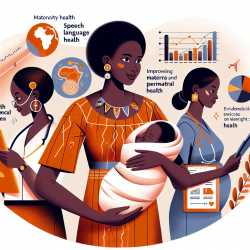Introduction
The COVID-19 pandemic brought unforeseen challenges, particularly for mothers balancing domestic responsibilities and professional roles. A recent study titled Mothers’ Domestic Responsibilities and Well-Being During the COVID-19 Lockdown: The Moderating Role of Gender Essentialist Beliefs About Parenthood provides valuable insights into the well-being of mothers during this period. As practitioners, understanding these dynamics can enhance our approach to supporting families through online therapy services.
Key Findings from the Study
The research highlights several critical points:
- Mothers' well-being significantly declined during the lockdown compared to pre-lockdown levels.
- Gender essentialist beliefs, which suggest that women are innately better caregivers, exacerbated the negative impact of increased domestic responsibilities on mothers' well-being.
- The study found that mothers who endorsed these beliefs reported lower well-being post-lockdown.
Implications for Practitioners
For speech-language pathologists and other practitioners, these findings underscore the importance of considering family dynamics and gender ideologies when providing support. Here are some ways to implement these insights:
- Awareness and Sensitivity: Recognize the additional pressures mothers may face due to societal expectations and gender ideologies. Tailor your communication and support strategies to acknowledge these challenges.
- Promote Egalitarian Practices: Encourage families to share responsibilities more equally, which can alleviate stress and improve overall well-being.
- Focus on Mental Health: Address the mental health needs of mothers as part of your therapy sessions. Incorporate stress-reduction techniques and provide resources for mental health support.
- Educate and Empower: Use your platform to educate families about the impact of gender essentialist beliefs and promote a more balanced approach to parenting.
Encouraging Further Research
While this study provides valuable insights, there is room for further exploration. Practitioners are encouraged to engage in research that examines the long-term effects of the pandemic on family dynamics and well-being. Consider collaborating with researchers to explore these topics in different cultural contexts or to develop interventions that address the identified challenges.
Conclusion
Understanding the interplay between domestic responsibilities, gender ideologies, and well-being is crucial for practitioners working with families. By integrating these insights into practice, we can better support mothers and promote healthier family dynamics. For those interested in delving deeper into this research, I recommend reading the original study.










